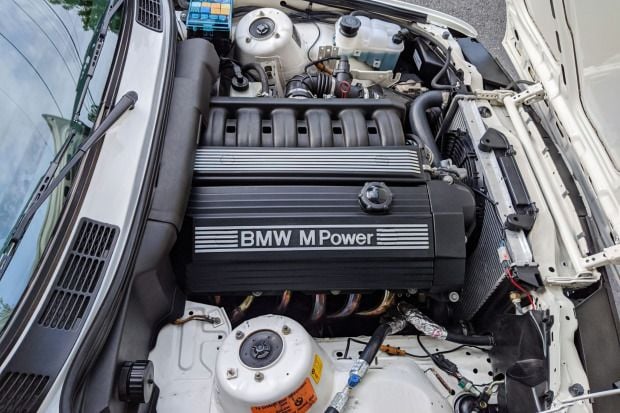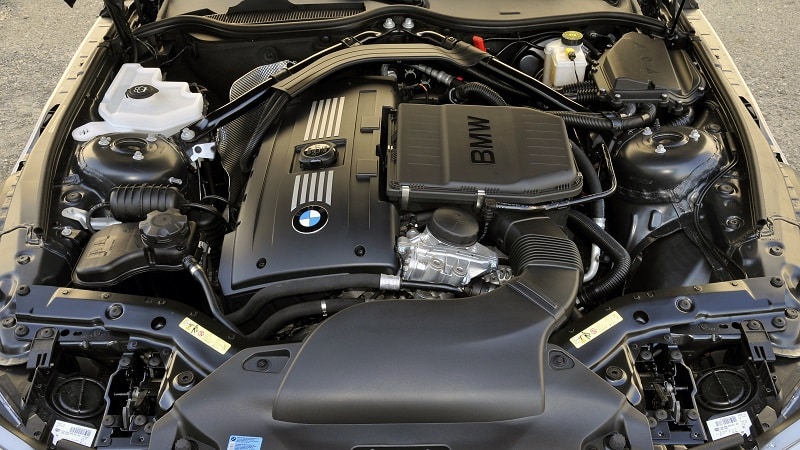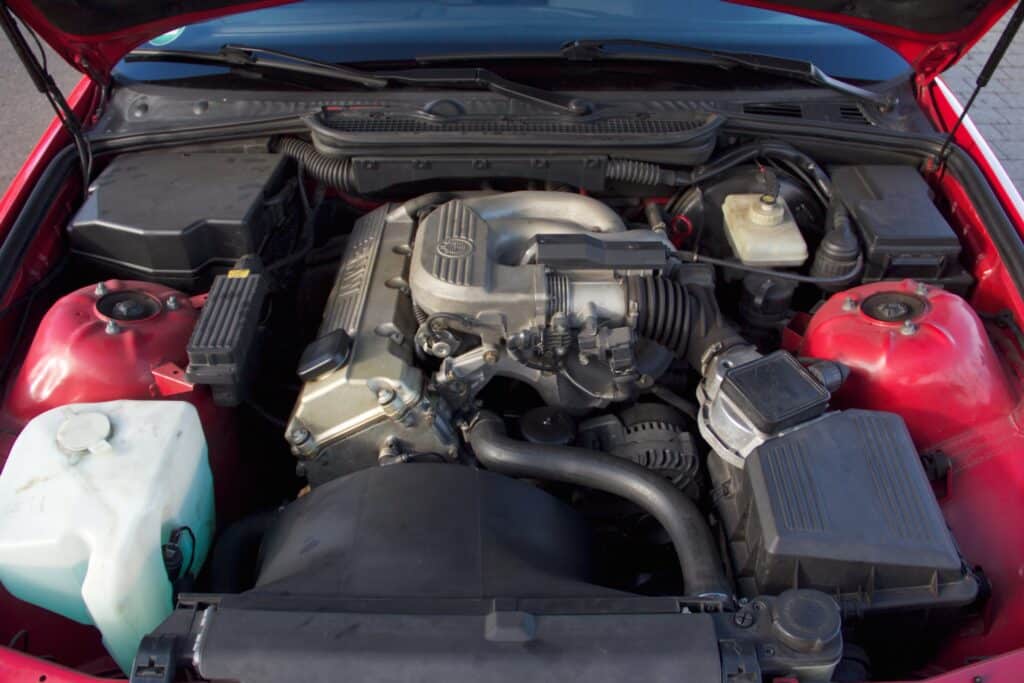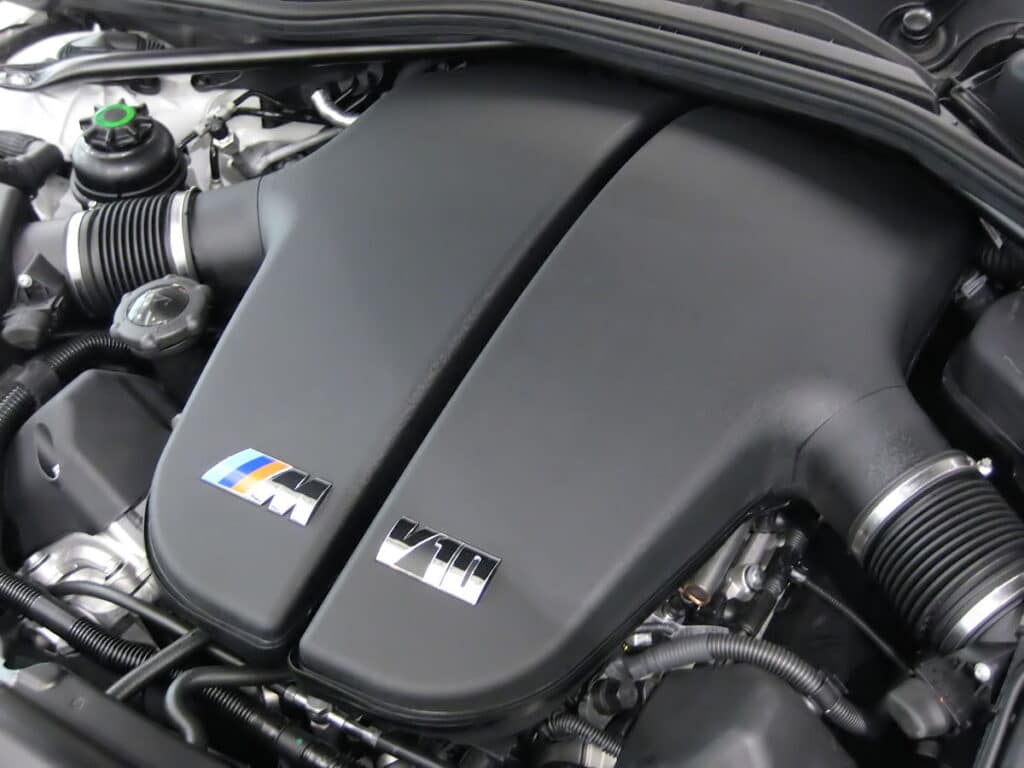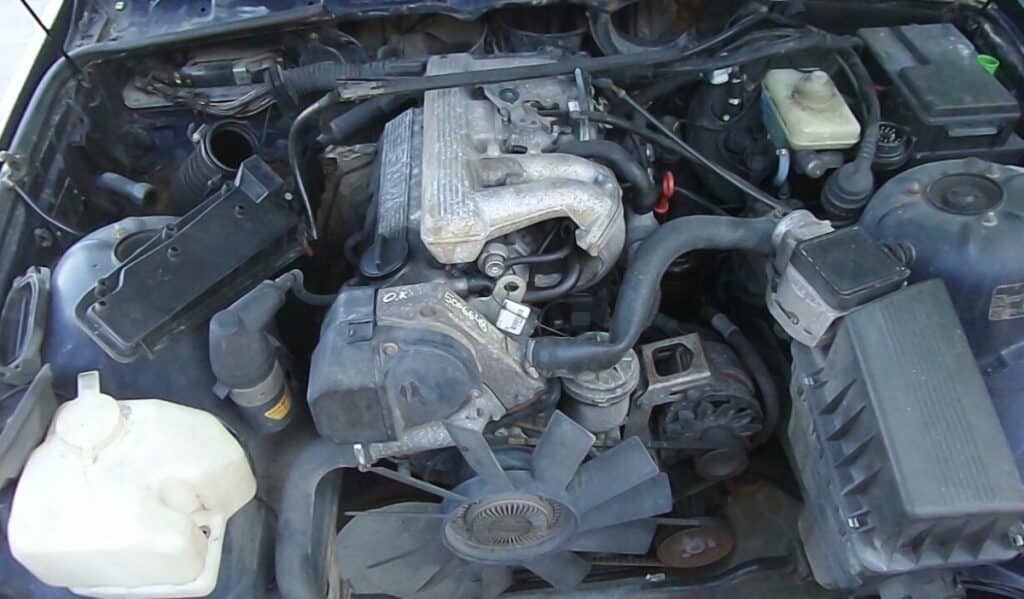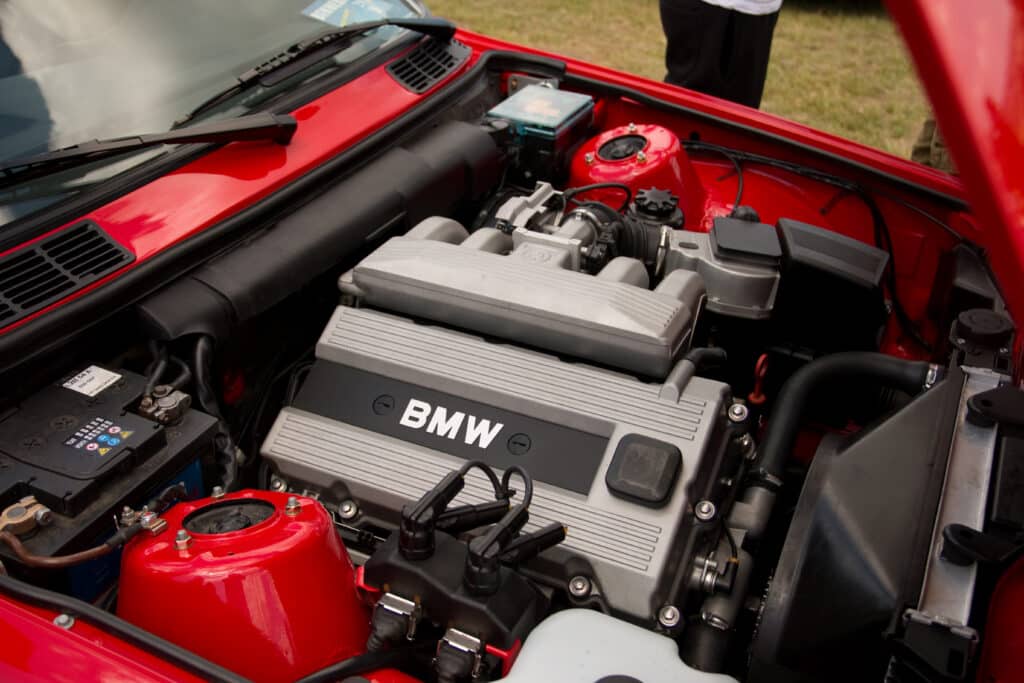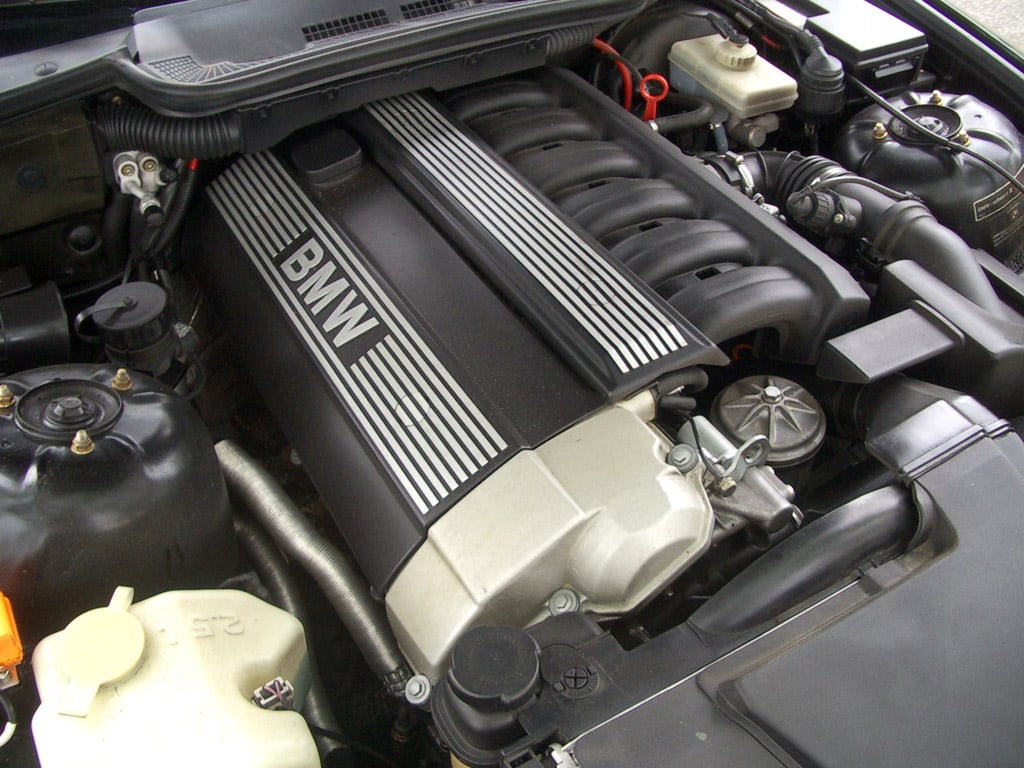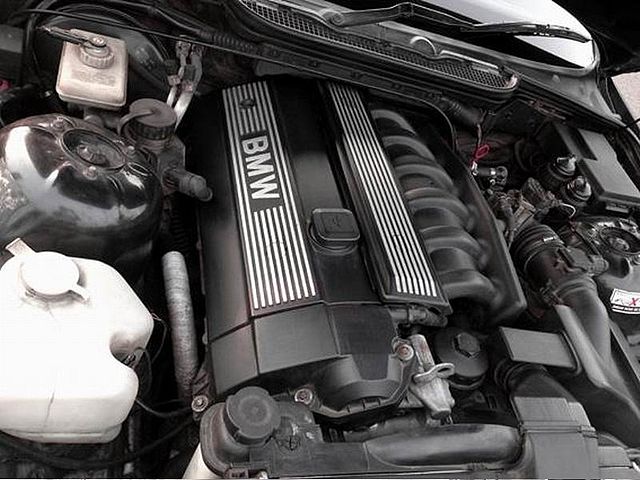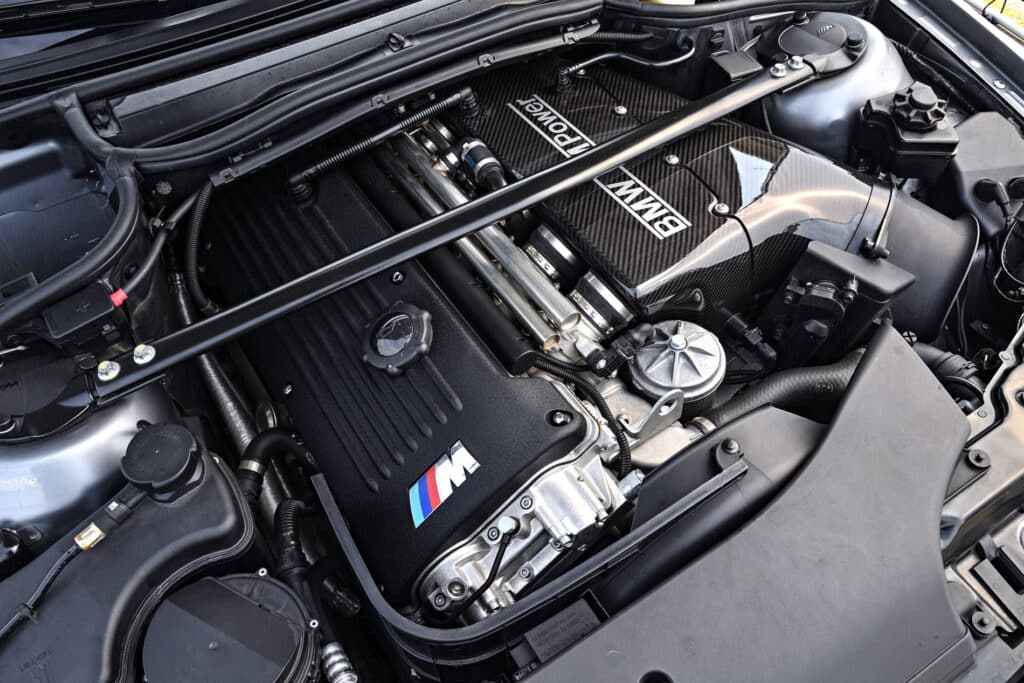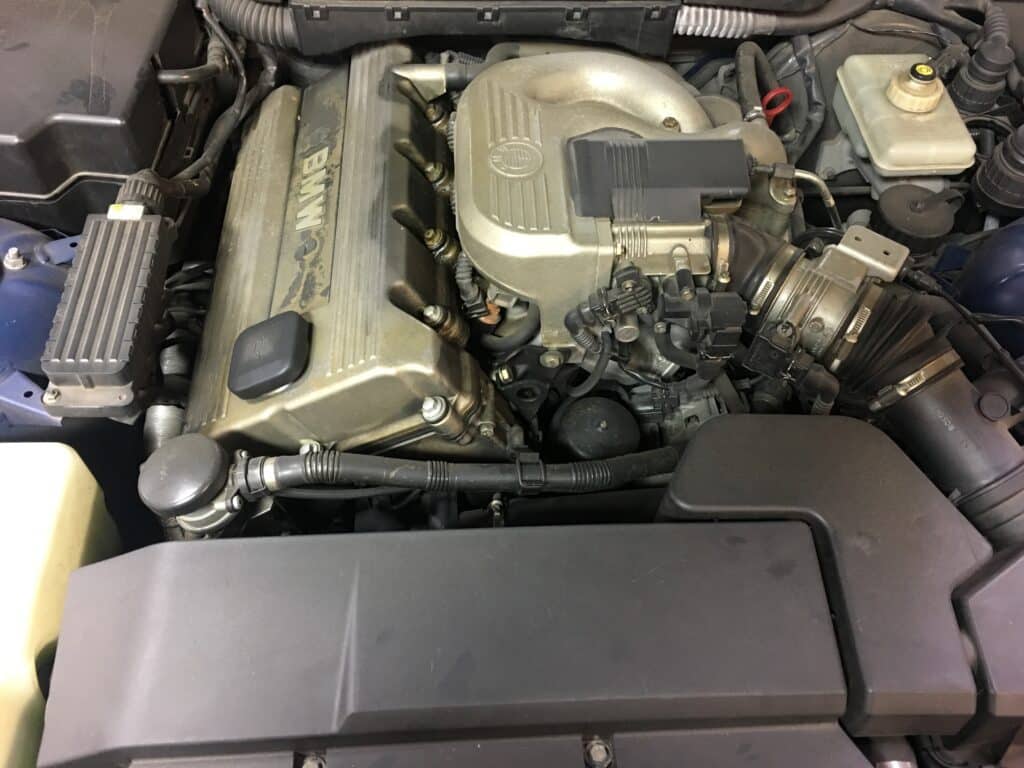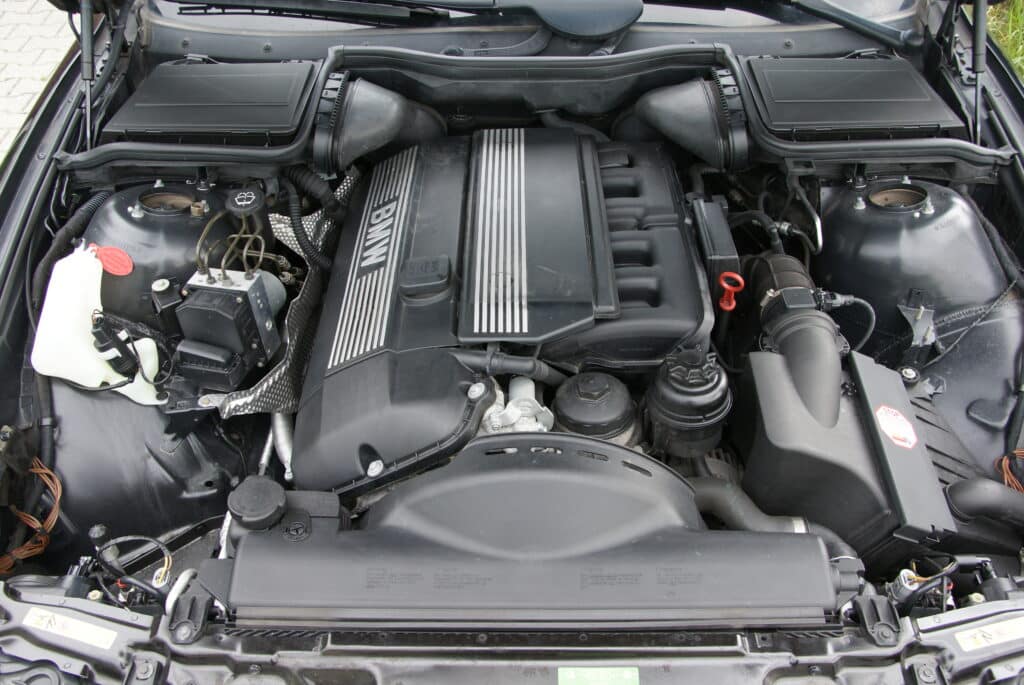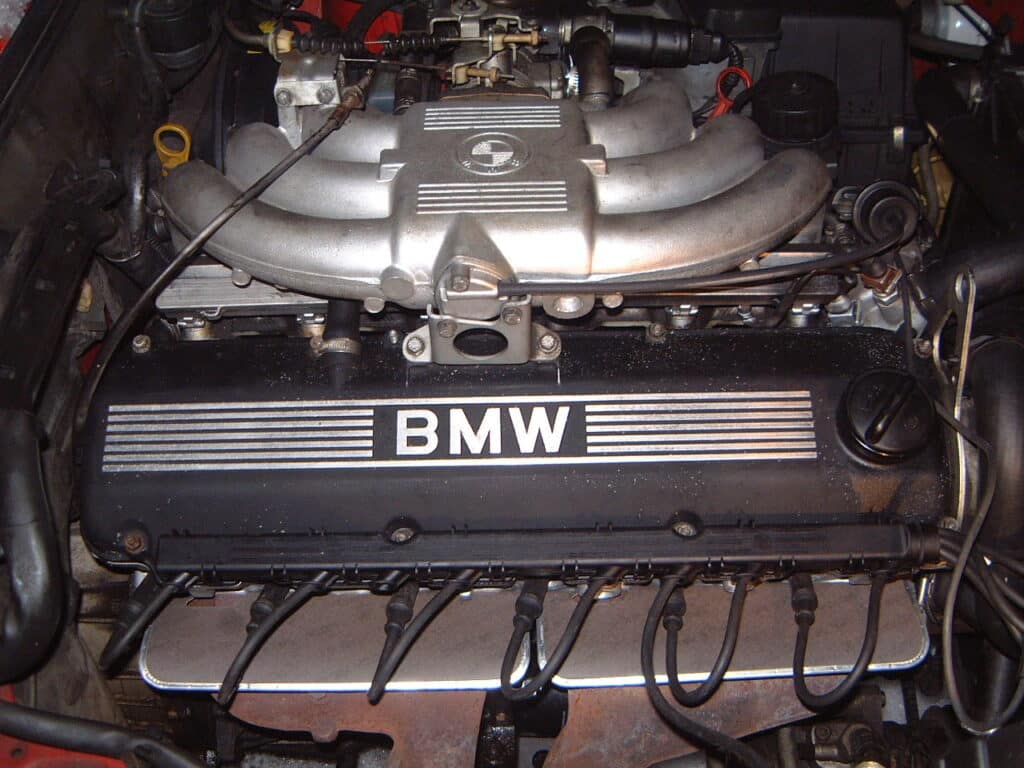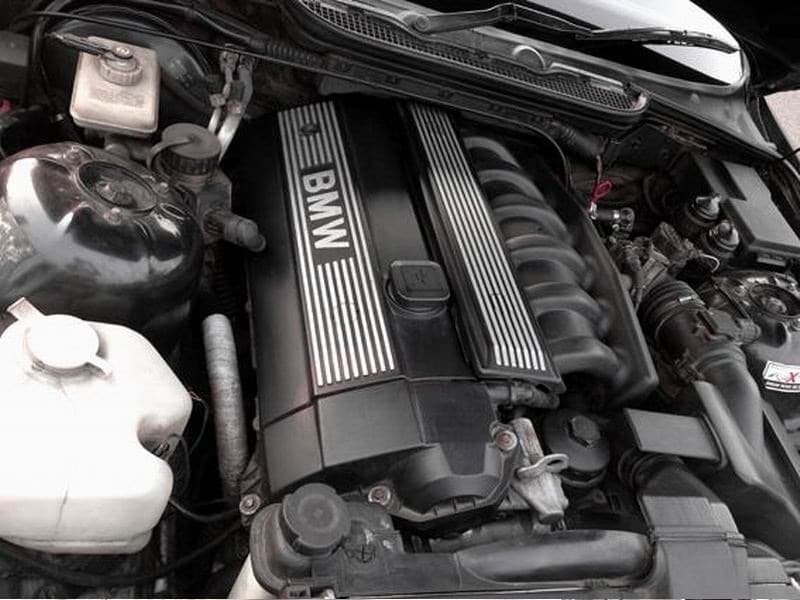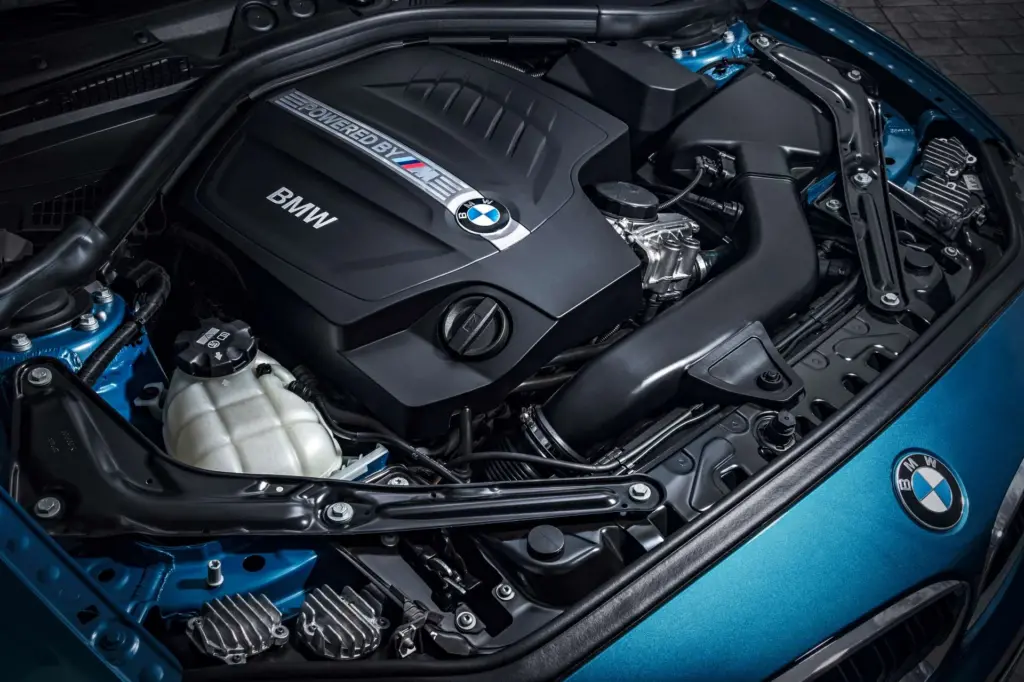The BMW N20B20 engine represents a significant milestone in the lineage of BMW powertrains. Introduced as a part of BMW’s strategy to blend performance with efficiency, the N20B20 is a 2.0-liter, four-cylinder, turbocharged petrol engine that has found its way into a wide range of BMW models since its debut.
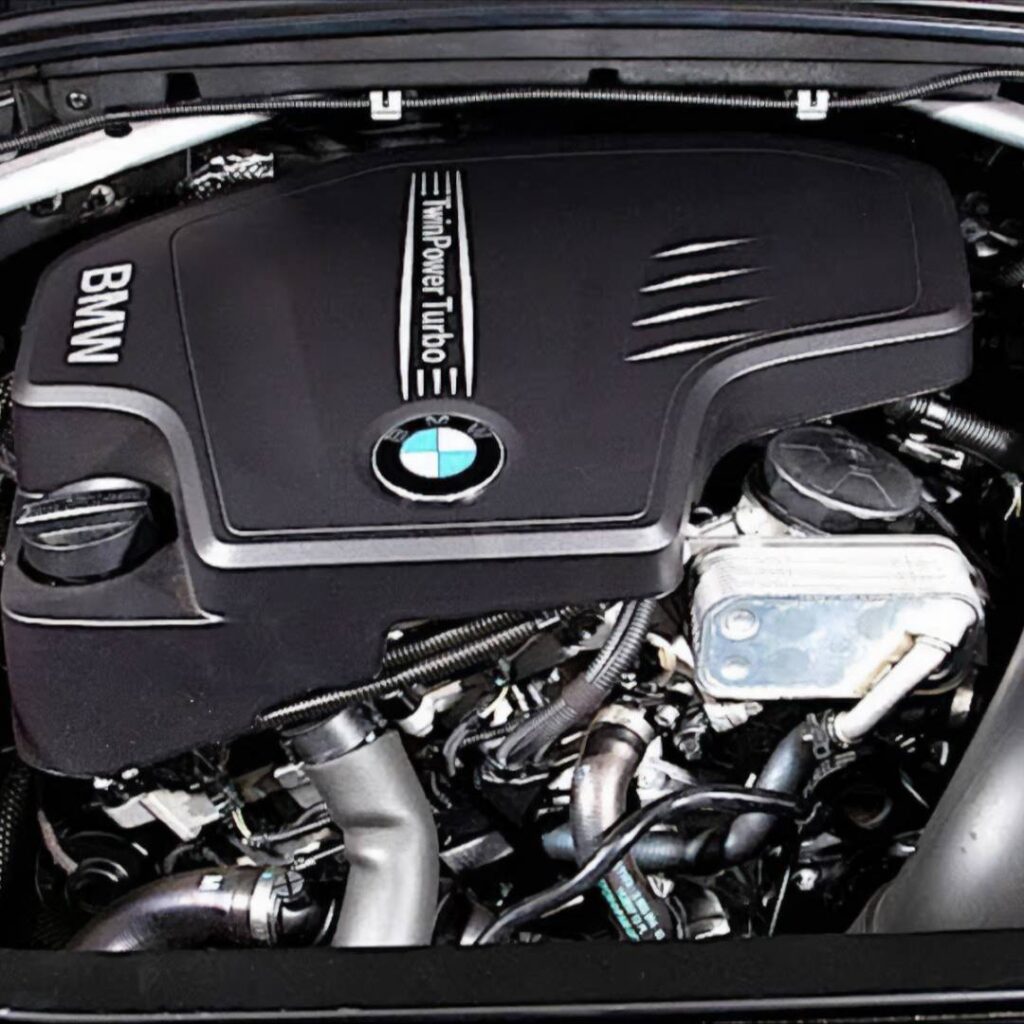
The engine is a marvel of modern engineering, showcasing BMW’s commitment to downsizing and turbocharging for enhanced fuel economy and reduced emissions without compromising the driving experience that the brand is known for.
With its advanced technologies, such as BMW’s TwinPower Turbo, the N20B20 sets a high standard for power, smoothness, and efficiency in its class.
Breakdown of N20 engine designation:
- N – BMW Group Development
- 2 – 4-cylinder in-line engine
- 0 – Engine with exhaust turbocharger, Valvetronic, and direct fuel injection (TVDI)
- B – Gasoline engine, longitudinally installed
- 20 – 2.0 liters displacement
- O – upper-performance class
- 0 – New development
BMW’s journey with turbocharged engines dates back to the 1970s with the iconic BMW 2002 Turbo. However, the N20B20 is a part of a more recent chapter in BMW’s history, where turbocharging has become the norm rather than the exception.
The evolution of BMW’s powerplants to include more turbocharged options, such as the N20B20, reflects the industry’s shift towards engines that provide an optimal balance between power output and environmental responsibility. This engine stands on the shoulders of its predecessors by utilizing a twin-scroll turbocharger, high-precision direct injection, Valvetronic variable valve lift, and Double-VANOS variable camshaft timing, making it a quintessential example of BMW’s engine innovation in the 21st century.
Within BMW’s lineup, the N20B20 is crucial in bridging the gap between efficiency and performance. It powers various models, from the compact 1 Series to the more luxurious 5 Series and even the sporty Z4 roadster, proving its versatility and adaptability.
This engine represents a key solution in meeting stringent global emissions standards while still providing the exhilarating driving experience associated with the BMW brand. As regulations become even more rigorous and consumer expectations continue to rise, the N20B20 is a testament to BMW’s ability to innovate and adapt without losing the essence of what makes a BMW engine special.
BMW N20 Engine Specs
| Specification | Detail |
|---|---|
| Engine Type | Turbocharged Inline-4 |
| Displacement | 1997 cc (2.0 liters) |
| Bore x Stroke | 84 mm x 90.1 mm |
| Compression Ratio | 10.0:1 |
| Power Output | 240 hp @ 5,000-6,500 rpm |
| Torque | 260 lb-ft @ 1,250 rpm |
| Firing Order | 1-3-4-2 |
| Valvetronic | Yes |
| Double-VANOS | Yes |
| Turbocharger Type | Twin-scroll |
| Direct Fuel Injection | Yes |
| Recommended Fuel | Premium Unleaded |
| Emissions Standard | EU5, EU6, ULEV, SULEV (Varies) |
The BMW N20B20 engine is a testament to the brand’s engineering prowess, encapsulating high performance in a compact and efficient package. This 2.0-liter, inline-4 engine boasts various cutting-edge features, including a twin-scroll turbocharger, direct fuel injection, and BMW’s proprietary Valvetronic and Double-VANOS systems. Collectively, these technologies enhance the engine’s efficiency, power delivery, and response.
The N20B20 engine has a displacement of 1997 cc (2.0 liters), with a bore of 84 millimeters and a stroke of 90.1 millimeters. It’s designed with a lightweight aluminum block and an aluminum head, which not only reduces overall vehicle weight but also improves the engine’s thermal properties.
The N20B20 engine follows a firing order of 1-3-4-2. This sequence is designed to optimize balance and smoothness, which are essential characteristics of a premium engine. It also contributes to the engine’s overall refinement, reducing vibrations and enhancing the driving experience.
| The setting of map thermostat | Coolant temperature |
| Starts to open | 97 C / 206 F |
| Fully open | 109 C* / 228 F |
Turbocharging is central to the N20B20’s performance, with a twin-scroll turbocharger that minimizes turbo lag and ensures a more immediate response. The direct fuel injection system provides precise fuel delivery, which aids in achieving a high compression ratio of 10.0:1, remarkable for a turbocharged engine. This, in combination with the Valvetronic system, allows for variable valve lift, providing more control over engine breathing and efficiency.
For enthusiasts and prospective owners seeking more detailed information, there are numerous resources and forums dedicated to the BMW N20B20 engine:
- Bimmerpost – A forum where owners discuss their experiences and share tips.
- BMW Engine Specs – A database of BMW engine specifications, including the N20.
- BMW Blog – Provides news and reviews related to BMW models, including those powered by the N20 engine.
What Cars Have A BMW N20 Engine?
115 kW version:
- 2013-present BMW E89 Z4 sDrive18i
135 kW version:
- 2011–present E84 X1 xDrive/sDrive20i
- 2011–present F25 X3 xDrive20i
- 2012–2015 F30 320i
- 2013–present F34 320i GT
- 2011–present F10 520i
- 2013-present F10 520Li
- 2011–present E89 Z4 sDrive20i
- 2014–present F22 220i
- 2015-present Brilliance Huasong 7 MPV
160 kW version:
- 2012–present F20 125i
- 2013–present F10 525Li
- 2015-present Brilliance Huasong 7 MPV
170 kW version:
- 2014–present F22 225i
180 kW version:
- 2011–present E89 Z4 sDrive28i
- 2011–2015 E84 X1 xDrive/sDrive28i
- 2012–present F25 X3 xDrive28i
- 2011–2016 F30 328i
- 2011–present F10 528i
- 2013–2016 F34 328i GT
- 2014–2016 F22 228i
- 2014–present F26 X4 xDrive20i
BMW N20B20 Engine Design and Components
| Component | Description |
|---|---|
| Construction | All-aluminum block and head |
| Block Design | Open-deck with iron inserts |
| Balance Shafts | Integrated for reduced vibration |
| Turbocharger | Twin-scroll for reduced turbo lag |
| Intercooler | Air-to-air type |
| Valvetrain | Valvetronic system with Double-VANOS |
| Timing | Chain-driven with tensioner |
| Engine Type | Interference |
The BMW N20B20 engine is a showcase of structural ingenuity. Its all-aluminum construction reduces weight, aiding in overall vehicle balance and performance. The block is designed with an open-deck configuration, which allows for better cooling efficiency.
The crankcase is reinforced with iron inserts to provide strength where needed without the weight penalty. Its balance shafts are meticulously engineered to counteract vibrations, ensuring the smooth operation characteristic of BMW engines.
At the heart of the N20B20’s forced induction system is a twin-scroll turbocharger, which separates the channels for pairs of cylinders, reducing interference and improving responsiveness. The intercooler is an air-to-air type, efficiently reducing the temperature of the charged air from the turbo, thus increasing the density of the intake air for better combustion efficiency.
The N20B20 utilizes BMW’s innovative Valvetronic system which eliminates the need for a traditional throttle body. Instead, it varies the lift of the intake valves, allowing for throttle-less load control which greatly improves efficiency and response. The engine features Double-VANOS, BMW’s variable camshaft timing technology on both intake and exhaust cams, optimizing engine breathing throughout the rev range.
This engine is equipped with a timing chain rather than a belt. The chain is designed to last the life of the engine under normal conditions, which reduces maintenance costs and improves reliability. However, there have been instances reported where the timing chain or the chain tensioner may require attention earlier than expected.
The N20B20 is an interference engine, which means that the path of the piston and valves can intersect. If the timing chain fails, it can lead to catastrophic engine damage as the pistons may collide with the valves. This design allows for better compression and efficiency but does require strict adherence to maintenance schedules.
BMW N20 Engine Problems And Reliability
The BMW N20B20 engine is a mix of high performance and advanced engineering, designed to meet the rigorous demands of daily driving and spirited sessions alike. Its construction with an aluminum block and head contributes to a lighter engine with efficient thermal properties, which can enhance durability. BMW’s reputation for precision engineering is evident in the N20B20, with its integration of technology aimed at reducing wear and extending service life.
In terms of longevity, the N20B20, when maintained according to BMW’s recommended service intervals, has proven to deliver substantial mileages without major issues. The use of high-quality materials and coatings also plays a role in the engine’s ability to withstand the stresses of turbocharging over many years of use.
While the N20B20 is generally reliable, there are a few common problems that owners should be aware of:
- Timing Chain Wear: Premature wear of the timing chain and its tensioner can lead to significant engine damage. Symptoms include a rattling noise from the engine, especially on cold starts.
- Valve Cover and Gasket Leaks: The valve cover and gasket are known to develop leaks over time. Indications include oil residue around the valve cover and a burning oil smell.
- Charge Pipe Failure: The plastic charge pipe can crack under high boost pressures, leading to a loss of power and the activation of engine warning lights.
- Fuel Pump Failure: High-pressure fuel pump issues can result in rough idling, stalling, and difficulty starting.
Reliability ratings from various automotive resources generally regard the N20B20 as a solid engine with a few caveats regarding maintenance. Regular, proactive service is the key to keeping the N20 in top running condition. In real-world performance, the engine delivers spirited acceleration and commendable fuel efficiency, but like any complex machine, it may develop faults over time.
The key to maximizing the N20’s longevity includes adhering to a strict maintenance schedule, using high-quality oils and fuels, and addressing any issues promptly before they escalate. Many drivers have reported crossing the 100,000-mile mark with few significant problems, provided the engine has been properly cared for.
For BMW enthusiasts and potential buyers, it’s important to remember that while the N20B20 is a high-performance engine, it doesn’t sacrifice reliability when maintained correctly.
However, given that it is an interference engine with a complex turbocharging system, potential owners should be prepared for the associated maintenance and repair costs that may arise from its sophisticated design. Regular inspections by a qualified technician, especially for key components like the timing chain and fuel system, can prevent most of the common issues and ensure a long and reliable service life for the engine.
Maintenance of the BMW N20B20 Engine
Proper maintenance is crucial for ensuring the performance and longevity of the BMW N20B20 engine. By adhering to BMW’s recommended maintenance schedule and using specified materials, you can help ensure your engine runs smoothly for years to come.
Recommended Oil Type and Capacity
The N20B20 engine requires synthetic oil that meets BMW’s Longlife-01 specification. The recommended viscosity is 5W-30, which provides a good balance between engine protection and fuel efficiency. BMW also approves oils that meet their newer Longlife-04 specification, which is formulated to be compatible with modern exhaust treatment systems.
The engine’s oil capacity is approximately 5 liters (5.3 quarts), but the oil level is always checked after refilling to ensure the correct amount.
BMW suggests changing the oil every 10,000 miles or once a year, whichever comes first. However, many enthusiasts and mechanics recommend more frequent oil changes, such as every 5,000 to 7,500 miles, especially if the vehicle is driven in severe conditions or used for high-performance driving.
The oil change procedure for the N20B20 is as follows:
- Warm up the engine to operating temperature to ensure the oil drains completely.
- Elevate the vehicle and remove the oil drain plug, allowing the old oil to drain into a suitable container.
- Replace the oil drain plug with a new one, if necessary, and tighten it to BMW’s specified torque.
- Remove the old oil filter and install a new one, lubricating the gasket with fresh oil.
- Refill the engine with the recommended type and amount of oil.
- Start the engine and check for leaks, then shut off the engine and recheck the oil level, adding more if necessary.
Spark Plugs and Gap Settings
BMW recommends replacing the spark plugs on the N20B20 every 60,000 miles. The correct spark plug gap is crucial for optimal engine performance and efficiency. The factory-specified gap for the N20B20 is typically between 0.030 and 0.032 inches (0.76 to 0.81 mm), but always verify this against the latest specifications from BMW or the spark plug manufacturer.
Engine Air Filter Replacement
The engine air filter should be replaced approximately every 30,000 miles or more frequently in dusty environments. A clean air filter ensures that the engine breathes freely, which is essential for maintaining performance and fuel economy.
Engine Coolant Specifications
BMW specifies a long-life antifreeze/coolant for the N20B20 engine, which is usually blue in color for BMW models. It should be a 50/50 mix of coolant and distilled water. The coolant should be replaced every 60,000 miles or every four years, whichever comes first.
Always use the type of coolant recommended by BMW to prevent corrosion and deposits within the cooling system.
BMW N20B20 Engine Repair and Troubleshooting
The BMW N20B20 is known for its advanced engineering and performance, but like any engine, it may require troubleshooting and repair over time. Understanding common issues and how to diagnose them is key to maintaining the engine’s health.
Diagnosing problems in the N20B20 engine starts with observing the symptoms. Unusual noises, decreased performance, or warning lights can indicate various issues. A diagnostic scan tool can be invaluable for reading fault codes from the engine control unit (ECU), which can provide specific clues to the underlying problems.
Timing Chain and Tensioner Concerns
One of the most critical issues with the N20B20 engine has been the premature wear of the timing chain and tensioner. Symptoms may include a rattling noise from the front of the engine, especially during cold starts, or even a check engine light if the timing has slipped significantly.
Repair involves replacing the timing chain, tensioner, and associated guides and seals. This is a labor-intensive process that requires the removal of many engine components for access. It’s imperative to address timing chain issues promptly to prevent catastrophic engine damage.
Turbocharger Maintenance and Common Failures
The turbocharger is central to the N20B20 engine’s performance. Common turbo-related issues include wastegate rattle and failure of the turbocharger seals, which can cause a loss of power and produce blue smoke from the exhaust due to oil burning.
To maintain the turbocharger:
- Ensure proper lubrication by using the recommended oil and changing it at the correct intervals.
- Let the engine idle for a short period after high-speed runs to allow the turbo to cool down before shutting off the engine.
- Address any boost leaks or malfunctioning diverter valves, as they can affect turbo performance.
If turbo failure occurs, it often requires replacement of the entire unit, which a qualified technician should do.
Valvetronic and VANOS System Repairs
The Valvetronic and VANOS systems adjust valve timing and lift for optimal engine performance and efficiency. Common issues with these systems include solenoid failure, sensor faults, and mechanical wear.
Symptoms of Valvetronic or VANOS problems can include rough idling, loss of power, decreased fuel efficiency, and the engine entering a fail-safe mode. Repairs may involve replacing solenoids, sensors, or in some cases, mechanical components within the Valvetronic and VANOS systems.
BMW N20B20 Engine Upgrades and Tuning
The BMW N20B20 engine comes from the factory with a high level of performance, but for many enthusiasts, the desire to extract even more power and improve driving dynamics leads them to the world of performance tuning. The engine’s turbocharged nature makes it particularly receptive to tuning, with significant gains possible from relatively simple upgrades.
Aftermarket Support and Upgrade Options
The aftermarket for the N20B20 engine is robust, offering a variety of options for those looking to enhance their engine’s performance:
- ECU Remapping/Chip Tuning: One of the most effective upgrades, remapping the ECU can adjust fuel delivery, boost pressure, and ignition timing to increase power and torque.
- Turbocharger Upgrades: Larger or more efficient turbochargers can increase the engine’s boost and airflow, resulting in higher performance.
- Exhaust System Modifications: Upgraded exhaust systems can improve flow and reduce backpressure, enhancing power output and adding a sportier exhaust note.
- Intake System Enhancements: High-flow air filters and intake systems can increase the amount of air entering the engine, which is critical for making more power.
- Intercooler Upgrades: A larger or more efficient intercooler can reduce intake air temperatures, allowing for a denser air charge and better performance.
- Water-Methanol Injection Kits: These can lower intake temperatures and increase octane, which is particularly useful for heavily tuned engines.
Impact of Modifications on Reliability
While modifying the N20B20 can lead to increased enjoyment and performance, it’s important to consider the impact on reliability:
- Warranty Concerns: Any modifications can potentially void the manufacturer’s warranty, so it’s wise to wait until it has expired or to be aware of the risks involved.
- Engine Stress: Increasing power stresses the engine and drivetrain components. Upgrades should be done in conjunction with strengthening these components to handle the extra power.
- Fuel and Oil: Higher performance may require higher-octane fuel and more frequent oil changes with higher-quality oil to maintain engine health.
- Professional Installation and Tuning: To minimize the risk of damaging the engine, professional installation and tuning are recommended. A well-tuned upgrade can often improve performance without significantly compromising reliability.
- Maintenance: With increased performance comes the need for more vigilant maintenance and potentially reduced service intervals to ensure the engine’s longevity.
BMW N20B20 Fuel Consumption and Efficiency
The BMW N20B20 engine is designed to offer an efficient driving experience without sacrificing performance. According to factory specifications, vehicles equipped with this engine have impressive fuel economy ratings, often reaching up to 34-36 miles per gallon (mpg) on the highway and about 22-24 mpg in the city. These numbers may vary depending on the specific model and year of the vehicle.
While the official ratings provide a benchmark, real-world fuel consumption can differ due to various factors such as driving habits, vehicle conditions, and maintenance practices. Many drivers report slightly lower efficiency figures in everyday use, with averages closer to 30 mpg on the highway and 20 mpg in urban settings. It’s also worth noting that driving in sport mode or with frequent hard accelerations will increase fuel consumption.
Tips for Improving Fuel Efficiency
For BMW N20B20 owners looking to maximize their fuel efficiency, here are some practical tips:
- Regular Maintenance: Keep up with regular engine maintenance, including oil changes, air filter replacements, and spark plug inspections to ensure the engine runs efficiently.
- Tire Pressure: Maintain the correct tire pressure as BMW recommends, as under-inflated tires can increase rolling resistance and fuel consumption.
- Smooth Driving: Adopt a smoother driving style with gradual acceleration and use of the vehicle’s momentum to coast where appropriate.
- Use of Features: Utilize the car’s EfficientDynamics features, such as the start-stop system and eco-pro driving mode, which are designed to conserve fuel.
- Excess Weight: Remove unnecessary weight from the car, as heavier vehicles consume more fuel.
- Cruise Control: On long highway drives, use cruise control to maintain a steady speed, which is typically more fuel-efficient than variable throttle inputs.
- Premium Fuel: Use the premium fuel recommended by BMW, as the engine is tuned for higher octane to deliver optimal performance and efficiency.
- Aftermarket Modifications: Be cautious with aftermarket modifications, as some can negatively impact fuel economy.
Frequently Asked Questions (FAQs)
A. What is the life expectancy of the BMW N20B20 engine?
The life expectancy of the BMW N20B20 engine, when properly maintained, can exceed 200,000 miles. Regular maintenance, including timely oil changes, using premium fuel, and addressing any mechanical issues promptly, is crucial to achieving this longevity. Driving habits and environmental conditions also play significant roles.
Are there any recall notices for this engine?
There have been recall notices in the past for the N20B20 engine, particularly regarding issues like the timing chain. Owners should check with a BMW dealership or the National Highway Traffic Safety Administration (NHTSA) for any current recalls concerning their vehicle’s engine.
How does the N20B20 compare to other BMW engines?
The N20B20 is known for its combination of efficiency and performance in a compact package. Compared to its six-cylinder siblings, it offers better fuel economy while still delivering the smooth power delivery and responsiveness that BMW engines are known for. It’s less powerful than the larger engines but serves as a more efficient alternative that doesn’t compromise much on the driving experience.
What are the signs of timing chain failure in the N20B20?
Signs of timing chain failure in the N20B20 can include a rattling noise from the engine upon startup, especially when cold; engine misfires; metal shavings in the oil (indicating chain wear); and check engine lights related to camshaft timing. If you notice any of these symptoms, it is essential to get the engine checked by a professional immediately to avoid potential engine damage.
Can the N20B20 engine use alternative fuels?
The BMW N20B20 engine is designed to run on premium unleaded petrol. There is no official support for alternative fuels like E85 or biodiesel for this engine. Using alternative fuels without proper conversion and tuning can result in reduced performance and potential engine damage and may void the vehicle’s warranty. Always refer to the owner’s manual or consult with a BMW specialist before considering any fuel alternatives.

